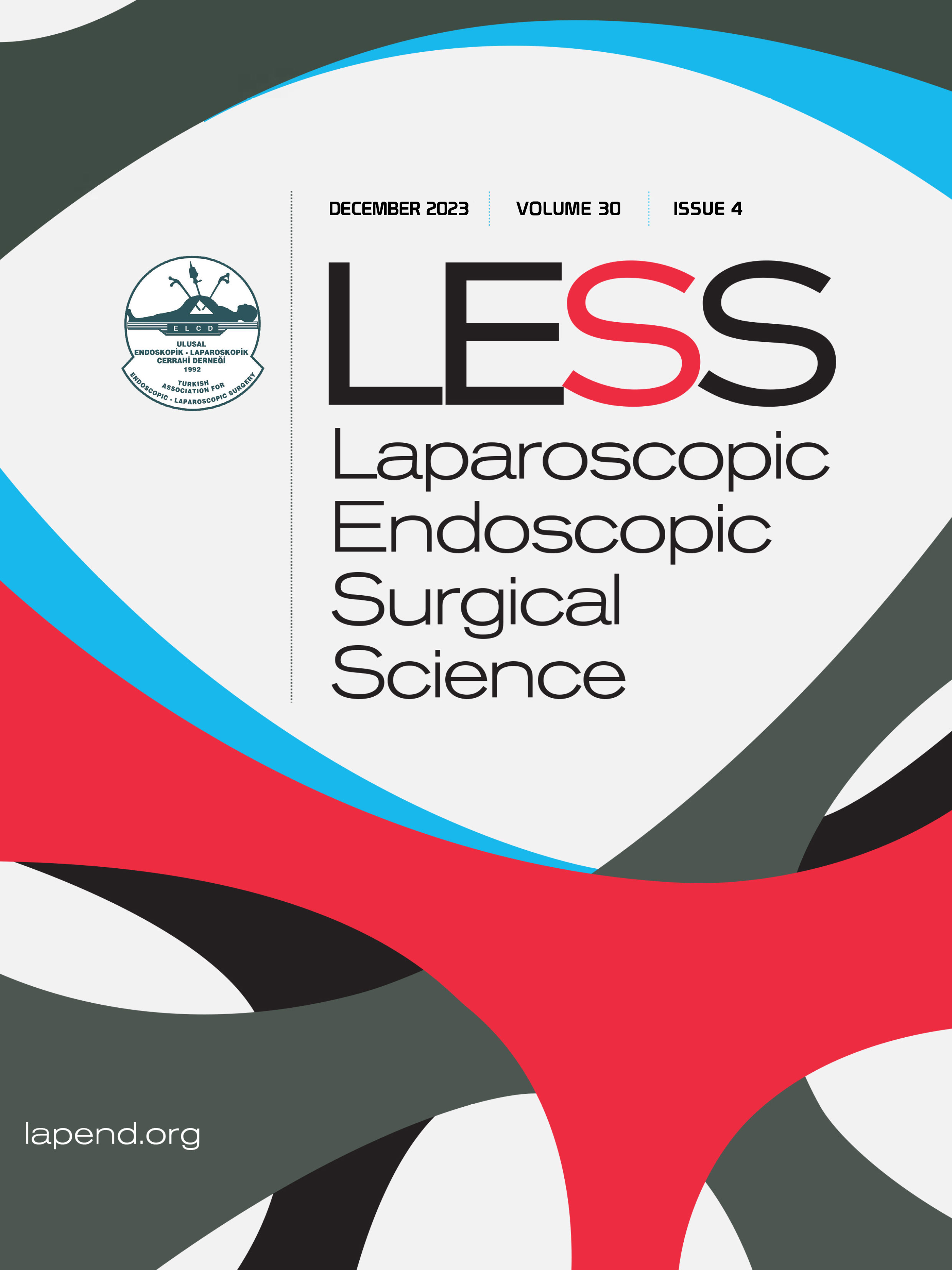Effect of laparoscopic mini-gastric bypass on diabetes in morbidly obese patients
Halil Coşkun, Mustafa Hasbahçeci, Süleyman Bozkurt, Erkan Yardımcı, Gökhan Cipe, Fatma Ümit Malya, Mahmut MüslümanoğluDepartment of General Surgery, Faculty of Medicine, Bezmialem Vakif University, Istanbul, TurkeyINTRODUCTION: The effect of bariatric surgery on type 2 diabetes mellitus, which is usually seen with obesity, remains to be detailed.
METHODS: Patients with type 2 diabetes mellitus who underwent laparoscopic mini-gastric bypass surgery between April 2011 and April 2013 were included in the study retrospectively. Demographic variables [age, gender, body mass index (BMI, kg/m2)], and laboratory findings [fasting plasma glucose (mg/dL) and glycosylated hemoglobin (HbA1c, %)] were evaluated. Measurement of BMI and laboratory investigations were performed in preoperative period and at postoperative 1st, 3rd, 6th, and 12th months.
RESULTS: Type 2 diabetes mellitus was detected in 26 of 94 patients (27.7%) who underwent laparoscopic mini-gastric bypass surgery. There were 18 female patients (69.2%) and 8 male patients (30.8%), and mean age was 40.7±10 years. Preoperatively, 23 patients were under insulin therapy, and 3 were under oral anti-diabetic treatment. Mean BMI was calculated as 45±5.9 kg/m2. During evaluation of the patients at 1st (n=26), 3rd (n=26), 6th (n=23), and 12th months (n=14), mean BMI was 40±5.7, 33.7±5.1, 26.9±5.3, and 22.4±6.73 kg/m2, respectively. Mean fasting plasma glucose level changed from 217±70.2 mg/dL preoperatively to 134±28.8 mg/dL at 1st month, 137±45.4 mg/dL at 3rd month, 116±23.8 mg/dL at 6th month, and 100±28.8 mg/dL at 12th month. HbA1c level of less than 7% was achieved in 18 patients (69%) at 1st month, 23 patients (88%) at 3rd month, 21 patients (91%) at 6th month, and 11 patients (78%) at 12th month. At the end of 1 year, oral anti-diabetic use was required in only 3 of 14 patients who were followed-up.
DISCUSSION AND CONCLUSION: Remission in type 2 diabetes mellitus occurred in 78% of the patients based on laboratory values at end of first year after bariatric surgery, and none of the patients required parenteral use of insulin. In light of these data, laparoscopic mini-gastric bypass can be considered an effective method of treatment of type 2 diabetes mellitus and concurrent surgical treatment of morbid obesity.
Corresponding Author: Mustafa Hasbahçeci, Türkiye
Manuscript Language: English












